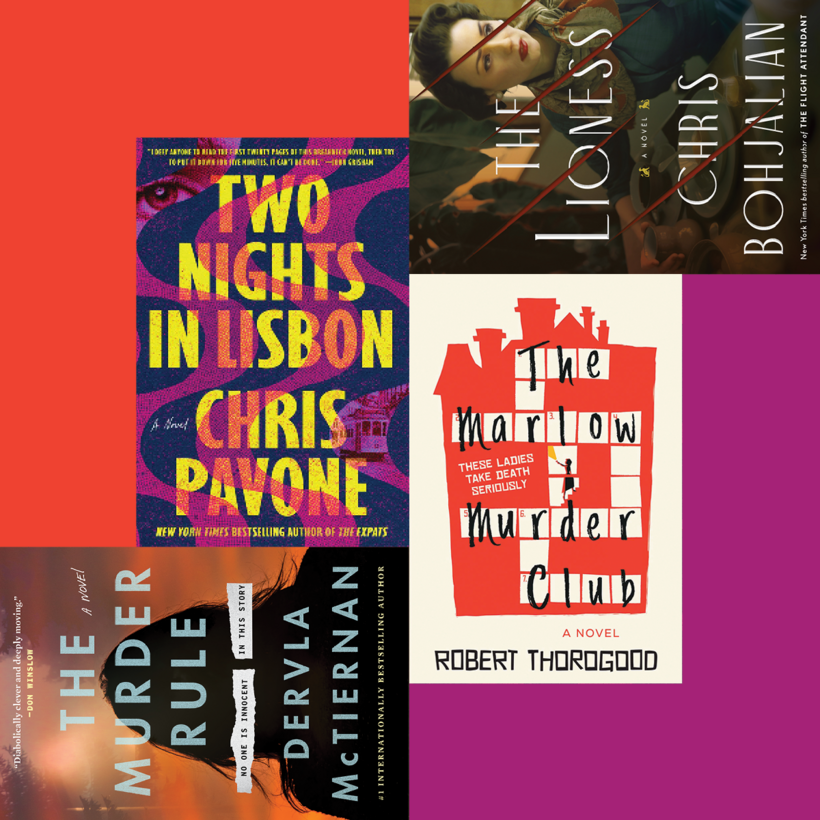“If you pretend with all your energy and focus, you can forget that you’re pretending.” That’s the essence of successful acting, as Chris Pavone explains in Two Nights in Lisbon, that zone you enter where you become one with your character. In three new thrillers, it’s a skill that’s central to each of the heroines, whose talents range from those of gifted amateur to experienced professional. All are fiercely committed to their performance goals.
As a young woman, Ariel Pryce trained to be an actress, which proved useful when she fled her bleak Park Avenue marriage to re-invent herself with a new house, name, and baby in a rural Long Island town. At the beginning of Two Nights in Lisbon, she has recently added a new husband to her modest household, and the couple is on a business trip to Lisbon when he disappears from their hotel early one morning. Ariel goes to the police and the U.S. Embassy, where she has trouble getting the authorities to take her seriously—he’s only been gone a few hours—but when she receives a ransom demand, they kick into gear.

